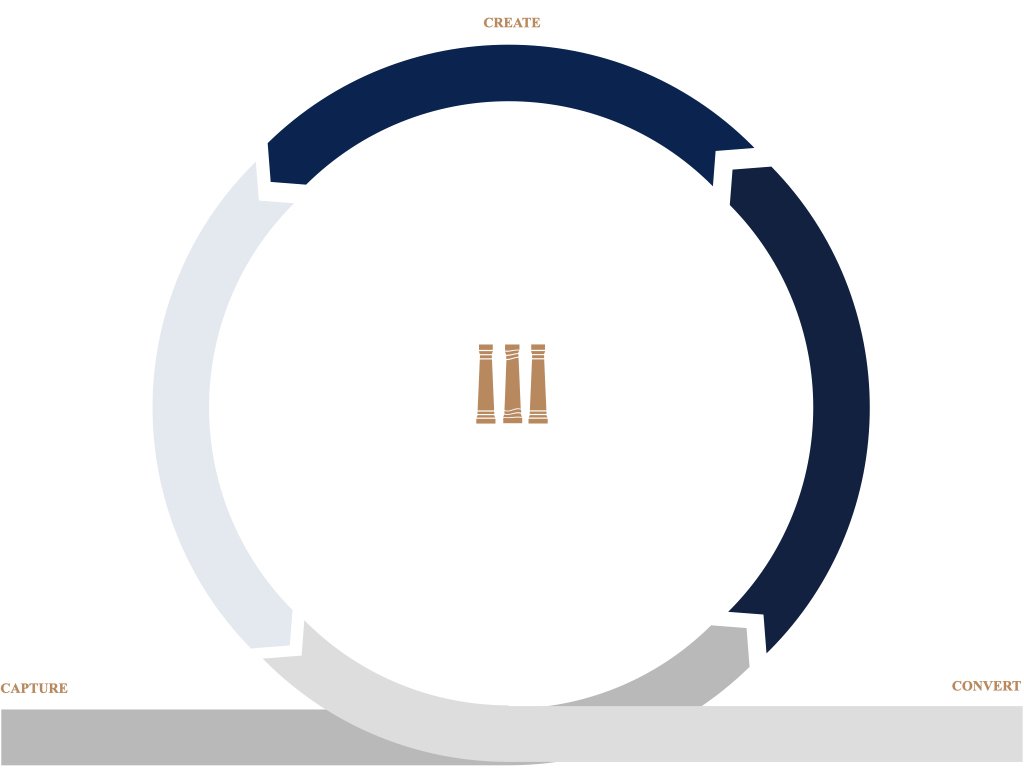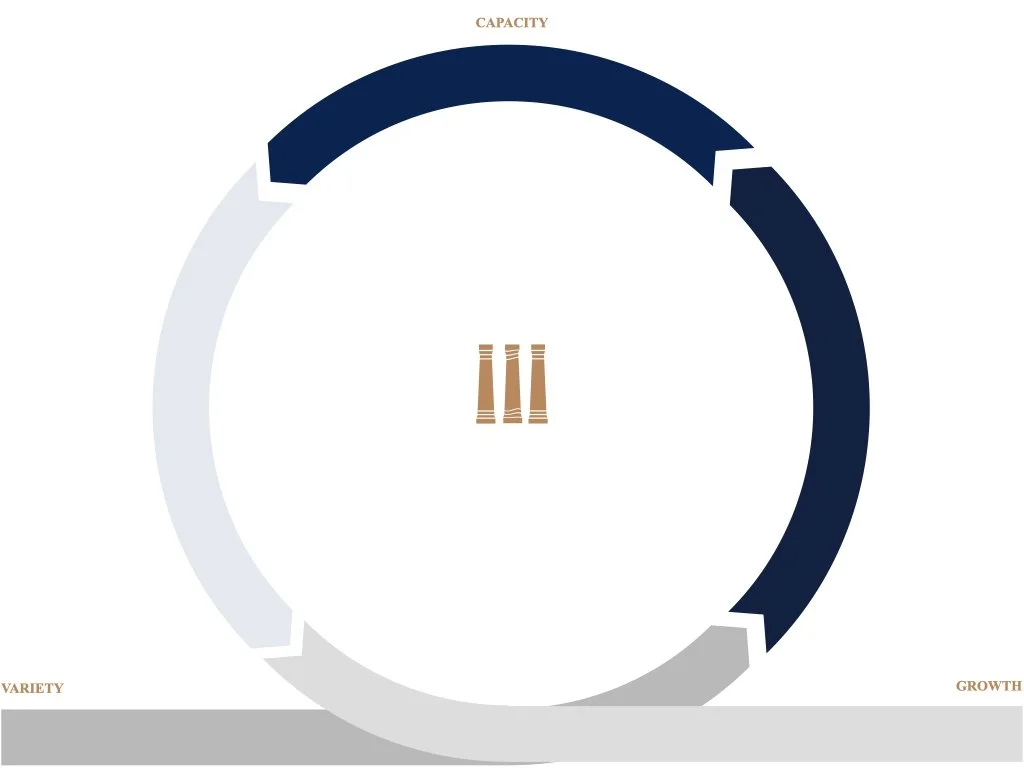
The Columbiae Group is leading the next frontier of problem solving, acting as catalysts for developing the knowledge formations necessary for durable growth. The foundation of our expertise lies in forging meaningful connections within and across any problem space, advancing the practice of interdisciplinary development as the essential mode of solving today’s most complex challenges.
Durability and the Developmental Motion
Lifecycles are not a linear progression of growth, maturity, and decline, but a continuous, developmental loop that must be actively managed to secure self-sustaining viability. This developmental loop requires synthesis between external complexity and internal architecture. This synthesis is known as interdisciplinary development, perpetually reorienting to leverage complexity into new frontiers without pause. The durability of any decision stems from the explicit and proprietary link between external complexity and internal architecture, which is absent in traditional models:
-
Spatial Framing: Setting the initial motion within the problem space.
The Columbiae Group ensures the necessary variety to effectively counteract, interpret, and leverage an evolving landscape. Factors contributing to complexity, where future boundaries are being decided, are captured into coherent positions. Complexity becomes an adaptive design constraint that coordinates market momentum before the freedom to do so is lost.
-
Kinetic Development: Converting external force into internal potential energy.
The Columbiae Group enables momentum into capacity, leveraging knowledge to adapt at a requisite pace. Capacity that creates the acknowledgment, assimilation, and application of differentiating scope at scale. Development that codifies existing and expanding forward guidance into a productive calculus faster than the environment.
-
Velocity Maximization: Achieving escape velocity from market dependency.
The Columbiae Group enacts developmentally intelligent, financially sound paths forward to maximize frontiers. Frontiers that convert external dynamics directly into superior, internally-driven economic viability. Viability decoupled from volatility, independent of future uncertainty and complexity to carry momentum into the next cycle.
The Columbiae Group navigates problem spaces through an interdisciplinary developmental model. We believe that the greater the complexity of the problem, the more essential it becomes to match it with solutions of equal or greater complexity, developing the capacity to evolve at a requisite pace.
The Mandates of Interdisciplinary Development
The lifecycle is interpreted as the ongoing, required synthesis between external complexity and internal capacity. The mechanisms necessary to transform volatility into viability mandate vital interventions to capture momentum earlier, create opportunity faster, and convert growth perpetually. These Mandates ensure options are viable before the market solidifies, enable organizations to leverage complexity instead of simplifying it away, and enact pathways forward to maximize economic frontiers.
-
Variety Mandate: Capturing Momentum Earlier
Capture the same degree of complexity as the external environment to inform future options and the opportunities between. Options that prevent obsolescence by proactively acknowledging evolving dynamics shaping future boundaries. The conditions to maximize the freedom to capture before that freedom is limited.
-
Capacity Mandate: Creating Opportunity Faster
Create proprietary knowledge by leveraging complexity into developmentally intelligent and differentiating capacity. Develop internal architectures scoped to assimilate external change at scale, moving faster than the environment. The conditions to maximize the freedom to create before that freedom is limited.
-
Growth Mandate: Converting Growth Perpetually
Convert internal architecture, adapted capacity, and performance calculus directly into superior financial returns. Performance that decouples long-term success from external dependence, making growth an internally-driven, predictable function of adaptive scope and scale. The conditions to maximize the freedom to grow before that freedom is limited.


